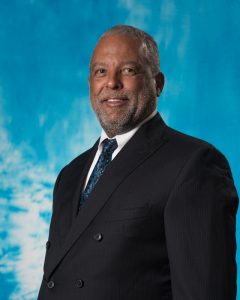Lewis W. Marshall, MD, JD, FAAEP, FAADM Explains How Families Can Prepare for Hurricane Season
 State and local communities have extensive emergency preparedness plans that can be found on the FEMA and Ready.gov websites. Individuals and families should develop plans on caring for children, as well as elderly and disabled family members, and pets. Emergency preparedness should also incorporate transportation plans that include meeting locations, shelter addresses, and contact lists, in case of evacuation orders.
State and local communities have extensive emergency preparedness plans that can be found on the FEMA and Ready.gov websites. Individuals and families should develop plans on caring for children, as well as elderly and disabled family members, and pets. Emergency preparedness should also incorporate transportation plans that include meeting locations, shelter addresses, and contact lists, in case of evacuation orders.
Emergency supply kits or go-bags are also a key part of any emergency plan. An emergency kit should contain supplies for a minimum of 72 hours but preferably 96 hours. Each family member should have water, cash, food, extra clothing, and personal hygiene items, and medication, if necessary. A 3-to-7-day supply of medication is optimal. A first-aid kit should also be included and should have, at the minimum, bandages, Ace wraps, triple antibiotic ointment, hydrogen peroxide, and ice packs. You can prepare an emergency go-bag with an old backpack, or you can buy emergency kits from READYWISE or STEALTH ANGEL with supplies for two or more people and up to three months. And don’t forget to make copies or take photos of important documents.
Hurricanes bring high winds and storm surges, so identify areas in the home that are more likely to be damaged by water and falling trees and choose a safe place in the center of the home, away from windows. A bathroom with a tub is a perfectly good option. You can shelter in the tub, using blankets, pillows, or even a mattress to cover yourself.
Many local news stations provide storm updates. To stay informed, make sure you have a battery-operated radio and spare batteries. A portable solar charging device for phones and radios is also a great tool. Additionally, sign up for emergency notifications from your local emergency management office and consider signing up for the local Community Emergency Response Team (CERT).
You should also know that the Centers for Disease Control and Prevention (CDC) has an alert system at https://www.cdc.gov/publichealthgateway/healthalerts/index.html. Additionally, the Federal Emergency Management Agency (FEMA) has an app and text message system and other resources for emergencies. To sign up for preparedness tips, text PREPARE to 43362. To search for open shelters, text SHELTER and a ZIP code to 43362. To get a list of all keywords you can subscribe to, text LIST to 43362.
Lewis W. Marshall, Jr, MD, JD, FAAEP, FAADM, is a physician leader at a safety net hospital in the Bronx and a two-time past president of the American Association of Physician Specialists, Inc. (AAPS), the governing body of the American Board of Physician Specialties® (ABPS). A Diplomate of the ABPS, he is certified in both disaster medicine and emergency medicine.






